Three key issues the Cork hurlers need to address for next season
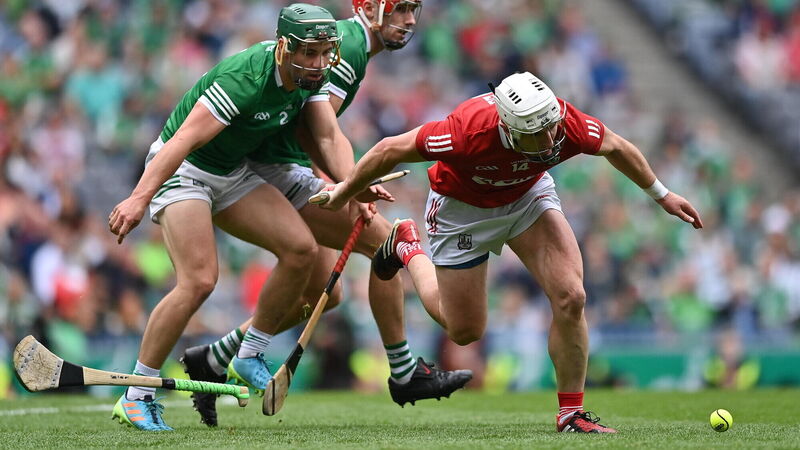
Patrick Horgan of Cork in action against Seán Finn and Barry Nash of Limerick in Croke Park. Picture: Piaras Ó Mídheach/Sportsfile
CORK'S season couldn't have ended on a lower note, humbled by Limerick in the All-Ireland final. Here we look at three key issues to tackle in the off-season.
Mark Coleman has neither the size nor the strength to be considered a natural number six. He's a gifted hurler in every other way, reliable in the air, a crisp striker left and right, blessed with an immaculate touch and wonderful vision.
He's not a stopper or a tight marker though and last Sunday, Limerick had way too much space in front of the D to spray passes into Gillane, Flanagan and Casey. Indeed there's a case to be made that Coleman's best position would be as the free man dropping out from midfield or wing-forward.
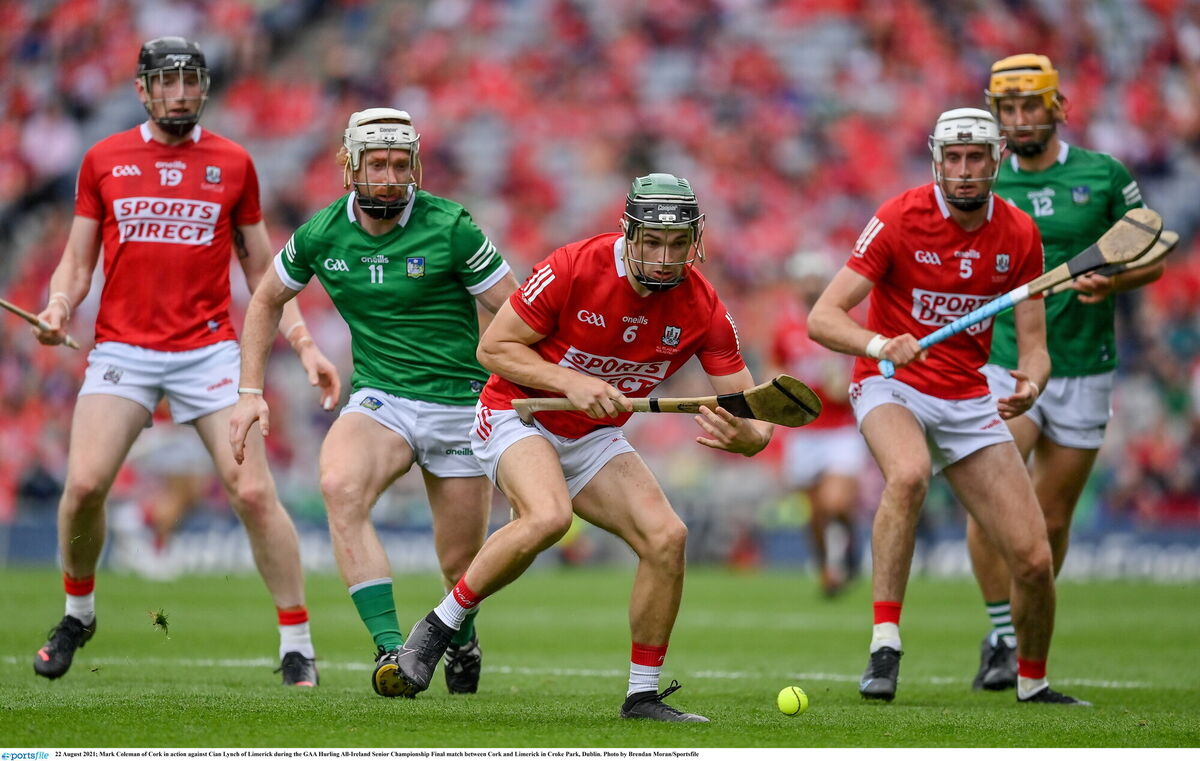
You can understand why the Cork management placed him as a playmaking, sweeping centre-back this summer. When it worked, against Dublin and Kilkenny, he dictated the tempo of the game. Coleman can run the sliotar through the lines or go long to the corners.
Luke Meade was outstanding all campaign as a deep-lying midfielder but that still wasn't enough in the face of Limerick's power play. Cork need an enforcer.
Cork U20 Ciarán Joyce, and minor Ben O'Connor, were immense as centre-backs for the county underage teams this summer, but they need to be nurtured patiently.
Declan Dalton is a physical, aggressive forward who started for Cork in the 2020 championship before injuries derailed his progress. The Fr O'Neill's target-man came on against Kilkenny and Limerick, however, and is the type of attacker who would offer something different in the Rebel front line.
Pace isn't an issue for Kieran Kingston's side, Jack O'Connor, Robbie O'Flynn, Shane Kingston and Robbie O'Flynn are blisteringly fast. There are few options for the route one approach.
Dalton, who looked in serious shape in his cameos in recent weeks, is a more traditional ball-winner. The dearth of those types of forwards in Cork is why U20 Brian Hayes will be on the radar of Kieran Kingston and his selectors next spring.
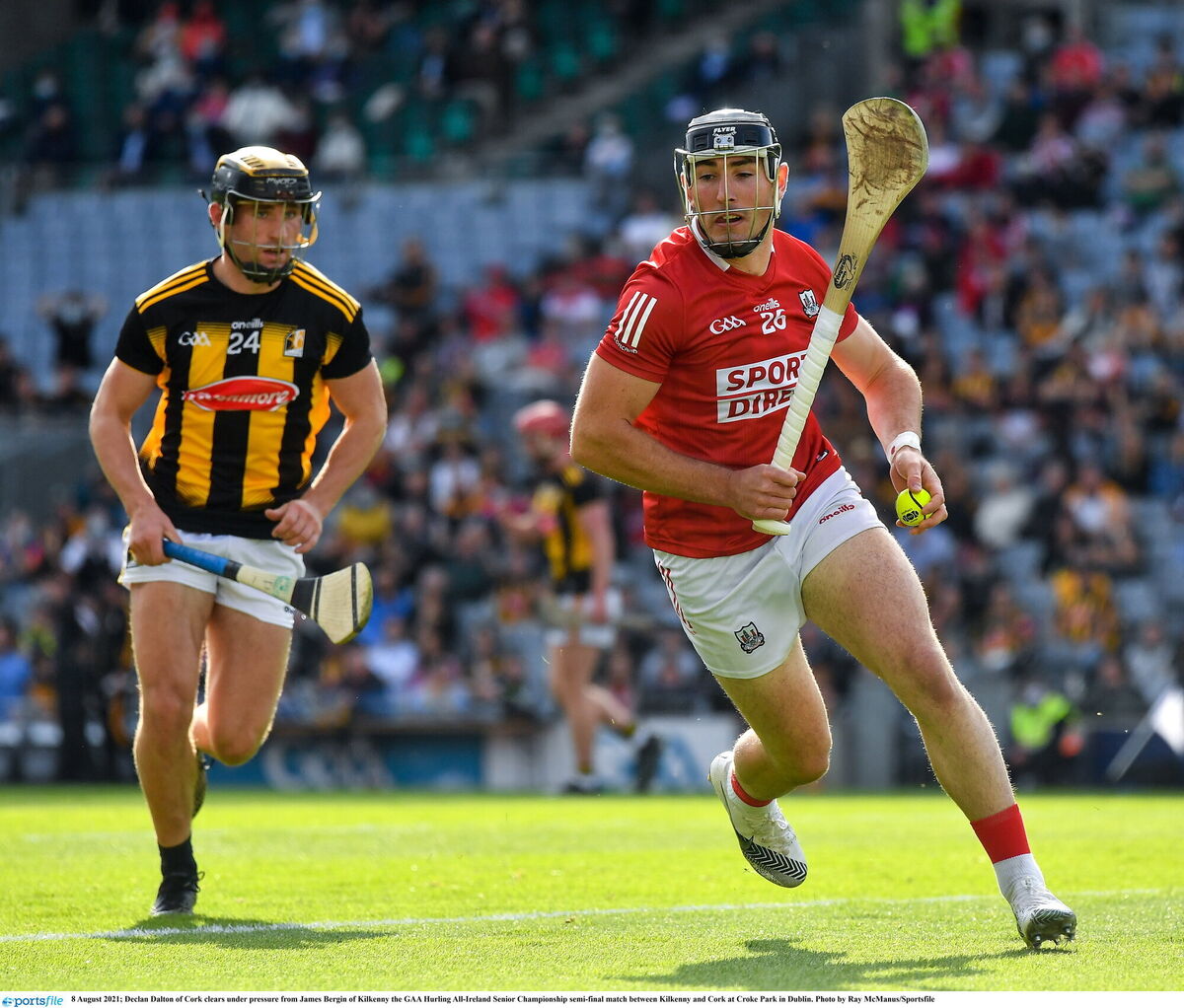
Hayes is raw, and as a dual player an ideal candidate for senior football as well, but has to be worth developing due to his size and athleticism.
Colin O'Brien, from Liscarroll, also ticks those boxes.
Pádraig Power was the most rounded of the forwards on the All-Ireland winning U20 side and will also come into the mix for 2021. Shane Barrett showed enough in recent months to press for a regular starting spot and can secure his own ball as well as adding even more speed to the front six.
Even with Seamus Harnedy and Patrick Horgan likely to hurl on, Cork need variety.
All bar the most eternally optimistic Cork supporters expected the Rebels to actually win in Croke Park last weekend. There was always a danger the Leesiders would be well beaten by a team gunning for a third All-Ireland in four seasons, who, for all the talk of Cork causing them problems, handled them comfortably in the league and Munster series.
What we didn't expect was a demolition so bruising that 10 minutes after the first water break the game was over. There were very few positives for the Cork players and management to take down the road from Croker.
Kieran Kingston did state this group are only a few months into implementing a new game-plan and only a few of them had experience of All-Ireland final day beforehand. Both fair points.
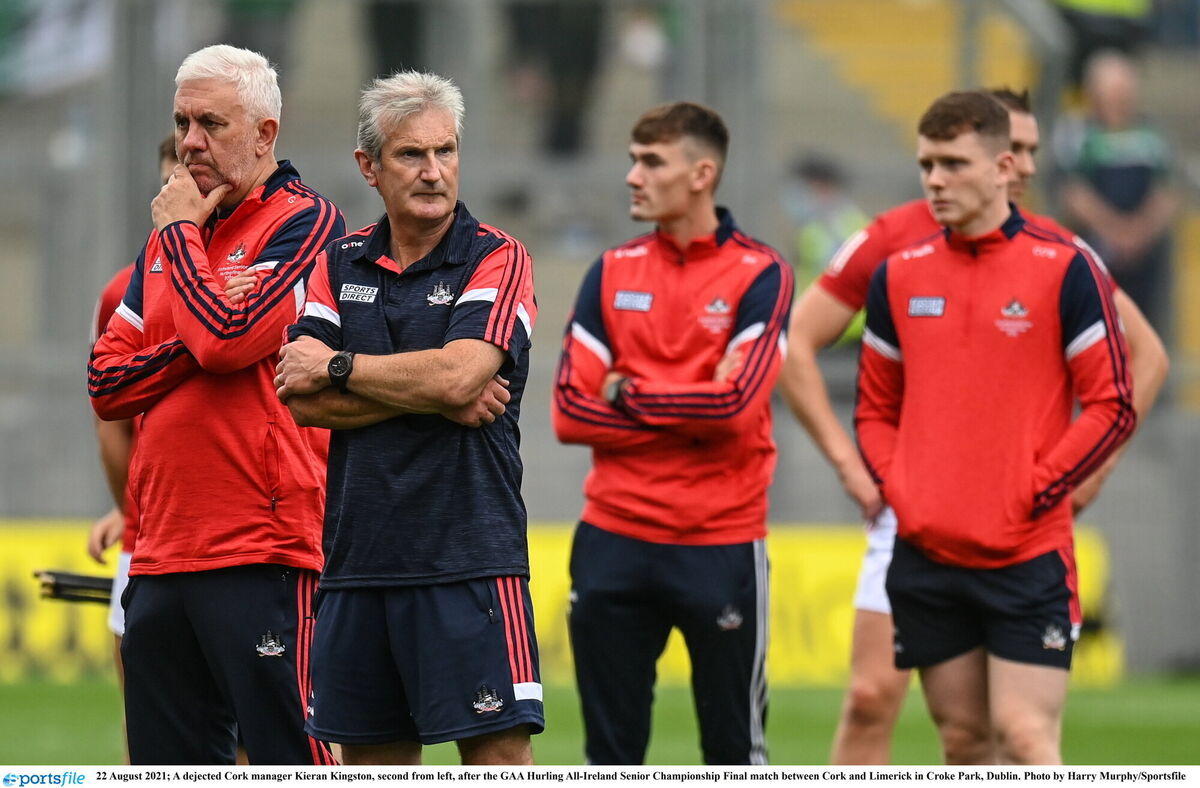
A decent block of strength and conditioning over the winter will naturally develop a largely young group further.
The selectors will look closely at how their tactics shortcircuited, leaving the defence exposed and key Limerick players like Kyle Hayes and Gearóid Hegarty free too often.
Sports psychologist Cathal Sheridan has critical work to do as well, to help these Rebels believe they're good enough to win an All-Ireland and beat a seasoned side like Limerick.

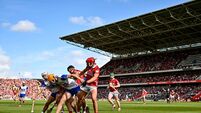


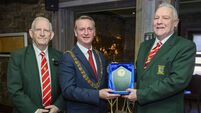
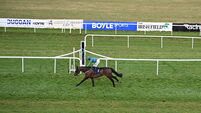



 App?
App?







